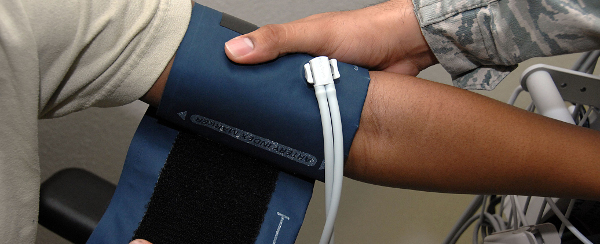ConsumerSafety.org is not accepting lisinopril cases at this time.
Lisinopril is a drug used to treat hypertension (high blood pressure) and help prevent heart failure. Unfortunately, the blood pressure medication has also been linked to a number of severe side effects, including an increased risk of developing diabetes, kidney failure, pancreatitis, and even liver damage. As a result, those who have suffered adverse events have filed lawsuits against Merck, the original manufacturer of lisinopril, seeking compensation to help pay for treatments related to these serious side effects.
Why People Filed Lisinopril Lawsuits
Lisinopril, commonly sold under the brand names Prinivil (Merck) and Zestril (AstraZeneca), is a type of blood pressure medication known as an ACE inhibitor. (ACE stands for angiotensin-converting enzyme.) Lisinopril was approved by the U.S. Food and Drug Administration (FDA) in 1987 under the Prinivil brand, and it is still used as a first-line treatment for hypertension and the prevention of cardiac events.
Lisinopril Side Effects
- Headache
- Dizziness or fainting (syncope)
- Coughing
- Nausea
- Rash
- Difficulty breathing
- Jaundice
- Low blood pressure (hypotension)
- High potassium levels (hyperkalemia)
- Liver damage (hepatotoxicity)
- Swelling (angioedema)
Lisinopril and Liver Damage
As a drug class, ACE inhibitors have been associated with rare cases of acute liver injury, specifically cholestatic liver injury. However, lisinopril is different from other ACE inhibitors in two ways:
- Apparent liver injury is more common with lisinopril than other ACE inhibitors.
- The type of liver injury lisinopril causes is hepatocellular, rather than cholestatic.
Both types of liver injury are serious, but hepatocellular liver injury involves liver cell death and can ultimately be fatal. (Cholestatic liver injury is often self-limiting.) According to the drug labels for Prinivil and Zestril, patients who develop jaundice or drug-induced hepatitis should stop taking the drug and seek help from a medical expert right away.
Many of the lawsuits filed against companies that make drugs containing lisinopril have focused on liver damage. Plaintiffs argue that drugmakers like Merck and AstraZeneca should have done more to warn patients about this potential adverse event.
Lisinopril and Birth Defects
Lisinopril and other ACE inhibitors have been associated with an increased risk of birth defects and even death when used by expectant mothers, especially during the second and third trimesters. Some of the specific birth defects associated with lisinopril include:
- Kidney damage or failure (reduced renal function)
- Fetal morbidity and death
- Neonatal morbidity and death
- Skull deformity (hypoplasia)
- Skeletal deformities
- Deformed lungs (hypoplasia)
- Inability to pass urine (anuria)
- Low blood pressure (hypotension)
- Death
Because of these problems, the FDA has long required a black box warning for Prinivil, Zestril, and other drugs containing lisinopril.
Lisinopril Black Box Warning
WARNING: FETAL TOXICITY
See full prescribing information for complete boxed warning.
- When pregnancy is detected, discontinue Zestril as soon as possible. (5.1)
- Drugs that act directly on the renin-angiotensin system can cause injury and death to the developing fetus. (5.1)
A 2006 study published in the New England Journal of Medicine showed a higher risk of birth defects in both the cardiovascular system and the central nervous system compared to other hypertension drugs -- such as valsartan -- taken during the first trimester. However, subsequent studies have been unable to verify those findings. In any case, the black box warning recommends discontinuing taking lisinopril immediately when pregnancy is detected.
Lisinopril Litigation
At this time, there are no significant class action lawsuits or multidistrict litigation for lisinopril. These types of mass torts are typically only created when there are a significant number of people who experience side effects that were not adequately disclosed in the prescription drug label. While side effects like angioedema could potentially be life-threatening (for example, due to swelling that causes airway restriction), drugs containing lisinopril do provide warnings about these potential dangers.
Historically, most product liability lawsuits for lisinopril have focused on unexpected liver damage caused by the drug. Most law firms are not taking new lisinopril lawsuits at this time.
Lisinopril Settlements
No major lisinopril settlements have been reported in the news or court records. Individual lawsuits may have led to settlements in some cases, but these are sometimes sealed and the settlement amounts are not available to the public.
Lisinopril Lawsuit FAQ
Can I File a Lisinopril Lawsuit?
Each case is unique, and the viability of a lawsuit can depend on a lot of different factors. In general, you may be able to file a legal claim if you or a loved one suffered an undisclosed adverse reaction from Prinivil, Zestril or another drug containing lisinopril.
How Much Money Can I Get for a Lisinopril Lawsuit?
Lisinopril settlement and verdict amounts can vary widely depending on the amount of pain and suffering the patient endured, the costs of medical procedures related to problems caused by the drug, and other types of legal damages. Juries may also be willing to grant punitive damages to punish the drugmaker or other parties involved. Successful lisinopril cases have led to hundreds of thousands of dollars, and even millions of dollars in some cases.
What Does a Lisinopril Lawyer Cost?
You may be able to file a case on a contingency basis. This allows you to submit your lawsuit without any upfront costs. If you do receive compensation as part of your lawsuit, a portion of that compensation will go toward legal fees.

